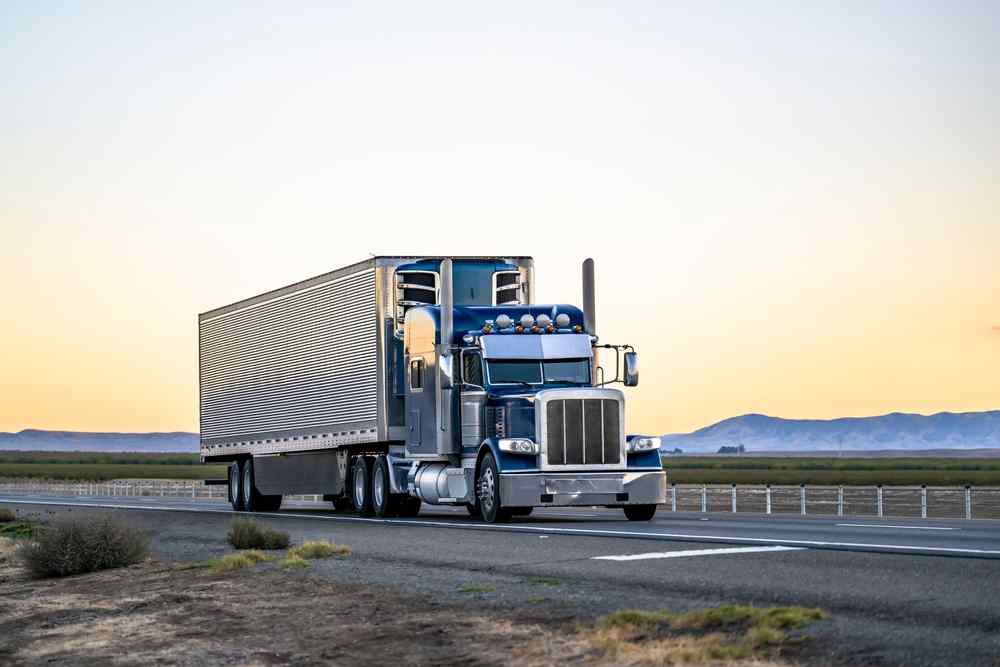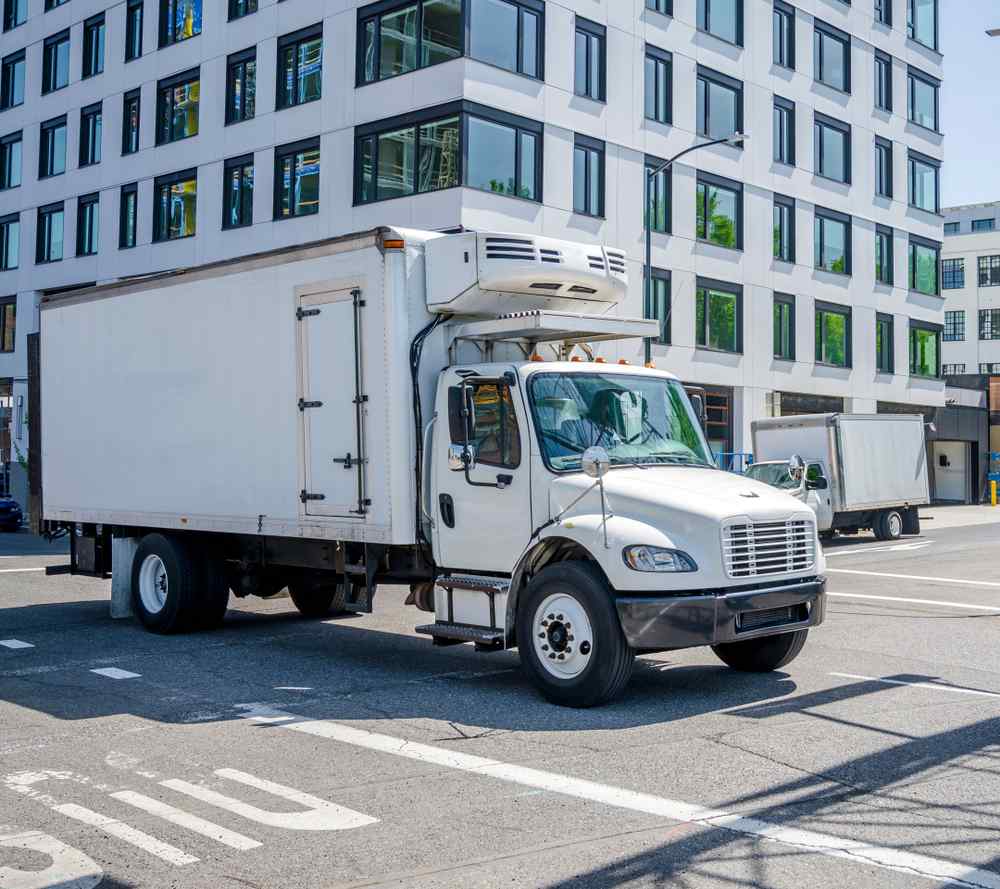Investing in a reefer truck in California is prudent if you’re passionate about the transport sector. In addition to attractive margins, you’ll get the opportunity to haul perishable goods like fresh produce, dairy, and medicine. As such, refrigerated truck owners need special insurance coverage, including reefer breakdown coverage/insurance, to minimize exposure to losses and risks.
More importantly, business owners depend on reefer trucks to transport non-perishable but temperature-sensitive items like bulk liquids, paint, flowers, and candles.
Nonetheless, running refrigerated trucks comes with additional
safety and haulage risks.
If you want to protect your truck business from losses related to reefer breakdowns, consider speaking to a
trusted truck insurance provider.
What is Reefer Breakdown Coverage?
Reefer breakdown coverage, referred to as reefer insurance. Is an endorsement that shields your cargo from spoilage losses if a refrigeration unit suffers a mechanical breakdown.
Although reefer breakdown coverage is not a necessity by law, shippers and brokers require carriers of
refrigerated goods to buy it before signing off contracts.
Reefer breakdown coverage helps cover the cost of replacing the spoilt cargo and expenses related to the disposal of damaged shipments.
How Does Reefer Coverage Work?
Reefer trucks face unique risks due to the additional electrical and temperature components required to keep the cargo at a suitable frozen or chilled level. Reefer coverage protects vehicle owners against the financial losses associated with the industry risks.
If the reefer cooling system breaks down during transit, the trailer’s contents could spoil or become unusable. A cooling system can fail for various reasons, including improper maintenance and collision with other vehicles.
Potential effects of cargo spoilage include:
- Loss of revenue
- Damaged reputation
- Litigation costs
Reefer breakdown coverage can offer financial compensation for the value of lost cargo. Some policies provide extended coverage with extra benefits, such as reimbursement of the additional expense of renting another reefer to complete the delivery.
Who Needs Reefer Insurance?
Reefer insurance is essential for people operating various vehicles, including reefer box trucks, refrigerated vans, semi trucks that haul refrigerated trailers, and pick-up trucks with refrigerated units.
Reefer insurance is also essential if you’re hauling the following refrigerated goods;
- Cosmetics
- Frozen goods
- Plants and flowers
- Temperature sensitive goods
- Refrigerated foods
- Medicine and medical supplies
What Insurance Coverage Is Mandatory for Reefer Trucking?
A
commercial truck must have various types of trucking insurance to be allowed to operate; however, reefer insurance is not part of the mandatory coverage. All commercial trucks must carry minimum liability insurance, which protects the public from the damage they can cause.
The
minimum insurance requirements for commercial trucks apply to reefer trucks. The state commercial requirements recognize the unique situations of a commercial truck. Therefore, the minimum insurance requirement depends on the cargo type and the reefer truck’s weight.
A reefer truck weighing more than 10,000 pounds must acquire the following type of liability insurance coverage:
- General freight—$750,000
- Household goods— $300,000
- Hazardous material—$5,000,000
While most commercial trucks operate within California, a considerable percentage frequently deliver interstate commodities. More importantly, California requires commercial trucks entering its boundaries to hold proof of financial responsibility.
It is an important consideration as a federal law comes into play whenever a commercial truck is involved in an interstate accident.
Besides the state regulations, minimum federal insurance regulations set by the
Federal Motor Carrier Safety Administration (FMCSA) apply. Federal insurance regulations are almost similar to those set by California.
The federal insurance regulations require a graduated scale of coverage that depends on the type of being delivered across state lines.
Here are the minimum federal insurance requirements:
- $300,000 for commercial trucks weighing less than 10,000 pounds
- $5,000 for trucks transporting household goods
- $750,000 to $5,000,000 for vehicles weighing over 10,000 pounds
- $10,000 for household goods transportation
California requires a higher insurance coverage level in most situations than federal laws.
Why Is It Essential to Have This Type of Insurance?
- Risk Mitigation: Businesses transporting perishable goods require reefer insurance to protect their investment. Depending on the nature of the damage, reefer insurance can reimburse the value of lost goods, shielding the company’s financial losses.
- Extended Coverage: If you hold minimum insurance coverage, your company could lose money in case of an accident. Reefer insurance provides an additional risk buffer, minimizing loss of profit, productivity, and buyer goodwill.
- Peace of Mind: Reefer insurance offers a financial reimbursement if your reefer truck refrigeration unit becomes damaged. Knowing the protection an insurance provider offers, you can concentrate on the company’s core mandate of transporting goods.
Exclusions to Look Out for in Reefer Breakdown Coverage
Reefer breakdown coverage primarily covers spoilage following the mechanical breakdown of a refrigerated unit. It excludes delays, negligence, errors, and other incidents. Most policies exclude certain products such as meat, seafood, and pharmaceuticals.
Generally, most insurers avoid certain types of goods. So, consider confirming with your insurer if the reefer endorsement covers the variety of cargo you carry. You may need to request any exclusion at an extra cost to enjoy full protection.
Similarly, some insurers have restrictive policies and will avoid paying claims for the following reasons:
- Excluding reefer trucks over a specific age limit
- Reefer trucks should be regularly maintained, and the same efforts should be documented.
- They require claimants to prove the cargo spoilage occurred due to refrigeration failure.
- Excluding spoilage that occurred related to specific refrigeration parts such as sensors
Note: Most shippers and brokers require at least $100,000 in cargo coverage insurance. A higher coverage comes with a higher premium because of the increased risk. Even so, the minimum limit still provides full coverage if something goes wrong.
Try Panorama Insurance Agency Reefer Breakdown Coverage
If you’re transporting medical supplies and your truck breaks down, uncontrolled temperatures can destroy the entire batch.
Unfortunately, most businesses lack the financial muscle to deal with the associated loss.
With that in mind, protecting your
truck business with reefer breakdown coverage makes financial and operational sense.
At Panorama Insurance Agency, Northridge, CA, we work with multiple insurance companies to give you a tailored insurance package at an affordable rate.
Contact us online or call us at
818.658.2867 to request a quote.




